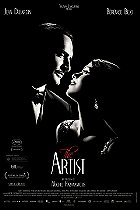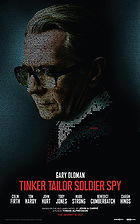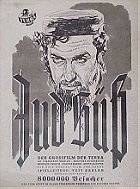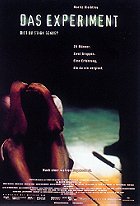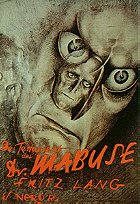Eight years on, a new terrorist leader, Bane, overwhelms Gotham's finest, and the Dark Knight resurfaces to protect a city that has branded him an enemy.
Christian Bale: Bruce Wayne
The trader states, "This is a stock exchange. There's no money for you to steal!"
While Bane coolly, resolutely responds, "Brother. Then why are you people here?"
The beauty is we can relate to many of the issues and problems within the story and this complex reality mirroring our own.
The Dark Knight Rises from legendary visionary Christopher Nolan succeeds in being a multifaceted epic piece which isn't just a dark, gritty graphic novel in the same vein as Frank Miller's books. It is a reminder about the problems we face in our World ranging from class struggle, greed and money, economics, politics... while the innocent are tainted by these factors with the label: Criminality... Then how we live our lives is ultimately engulfed within lies and decadence that surmount to our system of bondage. Truth is sacrificed because it is easier and cleaner to live a lie. The Batman has become the true vigilante because he wants Gotham to survive, he chooses the lesser of two evils... But The Dark Knight Rises asks us: At what cost?

The cast from The Dark Knight Rises is a sublime assemble with a few particulars whom shine and stand out. We have the old favourites: Micheal Caine and Morgan Freeman. Christian Bale as our dark vigilante and Bruce Wayne yet again.
Anne Hathaway as Selina with her Catwoman dual identity marks a memorable, sexy femme fatale professional thief. She perfectly captures and steals the audience with her curvy, seductive costume and her magnetic, unpredictable personality. Anne Hathaway makes her character truly believable and... adaptable indeed.
The antagonist of this piece Bane, played by an unrecognisable Tom Hardy, is another jewel in the crown. He is often seen as a stereotypical villain, yet also there are times where most of us can agree with his convictions and his views regarding the corruption and decadence which is spreading from a system and place rotten to the core in all fields: Whether it is a question of morality or economics, lies or truth.
His mask and physical appearance portray a powerful, muscular figure matched by an angry, extremely radical mentality wherein he knows what his goals are, he knows what his aims and objectives are... And he is the radical extremist whom is willing to carry out those revolutionary visions belonging to the group he is affiliated with.
As Bane makes his speech to the city we intently listen: "We take Gotham from the corrupt! The rich! The oppressors of generations who have kept you down with myths of opportunity, and we give it back to you... the people. Gotham is yours. None shall interfere. Do as you please. Start by storming Blackgate, and freeing the oppressed! Step forward those who would serve. For and army will be raised. The powerful will be ripped from their decadent nests, and cast out into the cold world that we know and endure. Courts will be convened. Spoils will be enjoyed. Blood will be shed. The police will survive, as they learn to serve true justice. This great city... it will endure. Gotham will survive!" He is becoming a revolutionary propagandist setting up his own lie before destroying it all. As the plot progresses we are given another question: Who is serving whom?
Cleverly, Bane is a complex and epic character who emulates the perfect mysterious leader and prophet like character: Ra's Al Ghul. Played by Liam Neeson in Batman Begins, he makes a welcome cameo in this third instalment.
Bane cannot be controlled by money, or intimidation, or anything or anyone: He is dedicated and driven. In those ways I find his character refreshing and inspirational.
"Oh, you think darkness is your ally. But you merely adopted the dark; I was born in it, moulded by it. I didn't see the light until I was already a man, by then it was nothing to me but blinding!
...The shadows betray you, because they belong to me!
...Ah, yes... I was wondering what would break first...
Your spirit, or your body?"
Upon reflection, and on a personal note, I found the love element, which presents a problem and conflict for Bruce Wayne to be distantly similar. I could relate to pain and suffering because some of us have had to deal with losing someone, with loss or heart ache. That point where we think we will never meet anyone else because that person we lost was the only person... That we would love for life. Like Bruce Wayne we cannot see at that point in time ever being able to establish that deeper connection ever again.
So when the audience, for example, sees that emotional scene with Alfred and Bruce having a heart felt conversation...
Alfred: [about Selina Kyle] You two should exchange notes over coffee.
Bruce Wayne: So now you're trying to set me up with a jewel thief?
Alfred: At this point, I'd set you up with a chimpanzee if it'd brought you back to the world!
Bruce Wayne: There's nothing out there for me.
Alfred: And that's the problem. You hung up your cape and your cowl, but you didn't move on, you never went to find a life, to find someone...
Bruce Wayne: Alfred... I did find someone.
Alfred: I know, and you lost her. But that's all part of living, sir. But you're not living. You're just waiting, hoping for things to go bad again.
When I listened to that you realise some of us can relate to this in so many ways: It's a painful reminder yet it is a hard lesson for those of us who find it difficult to let go because something or someone meant so much to us it takes a long time for change to come, to adjust to a life without them there. How can we live if we can't move on? The answer is we can't function, we can't live... It is hell. But we can overcome this ourselves, on our own. Then we are stronger for it.
The Dark Knight Rises is another unique masterpiece birthed from one of my personal favourites: Christopher Nolan. The inspirational legendary director seems to tap into what life is about, everytime he constructs and unleashes a story or film it concludes in being a puzzle. A puzzle full of twists, turns and perfected storytelling, where we are not just entertained, not just stimulated but made to think and indeed, he cleverly gives the mind lots to be inspired by regarding intellectual nourishment.
When we arrive at the end of The Dark Knight Rises it isn't the same as when we begun, nor was it what we expected. It is a beautiful example of love, light and hope.
The end shows us one person can make a difference. That happy endings do exist. That truth can triumph over falseness. Where light can triumph over darkness and where good and evil are clearly defined.
The Batman is a symbol and idea which isn't just restricted to one man. Like the phoenix rising and being reborn from the ashes so is a new hero rising within the darkness with water falling. A rising sun showing light will have its day... Or indeed Knight.
"Not a lot of people know what it feels like to be angry, in your bones. I mean, they understand, foster parents, everybody understands, for awhile. Then they want the angry little kid to do something he knows he can't do, move on. So after awhile they stop understanding. They send the angry kid to a boys home. I figured it out too late. You gotta learn to hide the anger, practice smiling in the mirror. It's like putting on a mask."
 Login
Login
 Home
Home 24 Lists
24 Lists 448 Reviews
448 Reviews Collections
Collections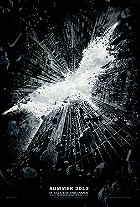
 0 comments,
0 comments, 

